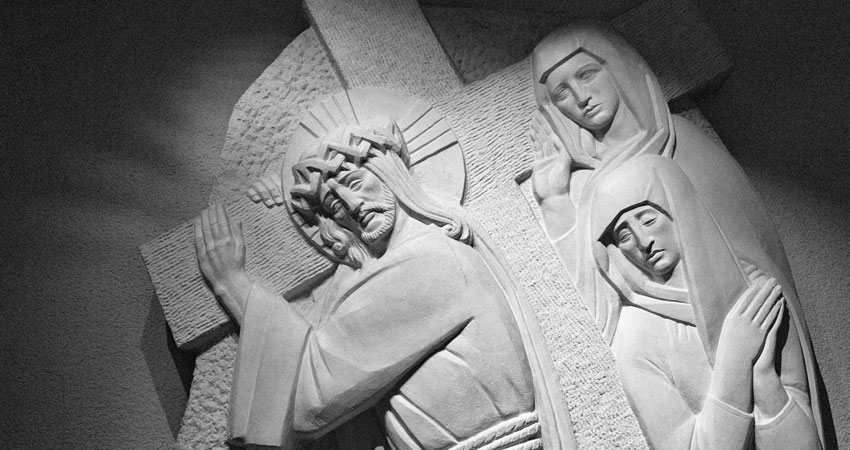Tucker Else
Christian Union Ministry Director
University of pennsylvania
Jesus gives radical commands in the Bible, such as to “take up your own cross and follow me.”
This is a call to kill our own desires and follow him in loving others sacrificially, even to the point of death. Often-times, these commands come alongside warnings.

For instance, we are called to take sin seriously: “If your hand causes you to sin, cut it off.” Jesus said this in the context of God’s righteous judgment against sin.
What has happened in the Church at various points of history, but especially in the last 50 years, is that Jesus’ language regarding sin and hell has been stricken from the record, in large part because of delicate post-modern sensibilities.
And instead of the great Reformation creeds of Sola Scriptura, Sola Fide, Sola Gratia (scripture alone, faith alone, grace alone) many churches have moved on to “Sola bootstrapus” (lift yourself up by your bootstraps alone!).
This leaves us with a “Do better, try harder” ethic.
“I just try to be a good person,” is what I often hear when asking someone about where they are at spiritually. But here’s the deal: We are utterly clueless about what a good person is.
We think in categories of “mankind vs. mankind.” Hitler is bad. Ghandi is good. We put ourselves somewhere in between. And usually, in our eyes, that is much, much closer to Ghandi.
But to illustrate the biblical teaching on true goodness, consider this:
By Ghandi’s good deeds, he built a ladder reaching toward heaven, and his ladder has a million rungs of good deeds in that direction.
Hitler, on the other hand, has dug a hole downward and his puny little ladder is about a million rungs going in the wrong direction.
But heaven, God’s throne room, is still trillions of miles from each of them. We can say, “Ghandi got closer,” but his 1 million rung ladder is still pathetically inadequate considering he has trillions of rungs to go!
The “I hope my good deeds outweigh my bad” ethic simply doesn’t work, and isn’t biblical.
Jesus talked about hell more than any other writer in Scripture. The reason for that is he wants to warn us away from sin, condemnation and death.
And given these warnings and commands, our hearts should break because in and of ourselves we fall so woefully short of what God requires of us. All of us see decay around us. We see the second law of thermodynamics played out: everything is winding down.
And we know, it is written on our consciences, that all is not well with our souls. Jesus’ warnings are an affirmation of our stricken consciences.
But there is another side to these warnings and commands; the call to see the beauty of Jesus.
Pastor Tim Keller writes:
“The Gospel promises that there is a world, a bright heaven of invention, an eternal world where everything your heart desires is there, but there is a barrier between us and that. The Gospel says in spite of our flaws, in spite of how we treat God and others, someone has broken through the barrier and all that heaven and power and glory can come in to you.”
Jesus is the one who has broken through, and our hearts find rest in Him. He’s the one who built the ladder, and He’s the one who carries us up.
The Gospel of Jesus Christ tells us that we are so sinful that God had to die for us, but so loved that He was happy to do so.
 Tucker Else is Christian Union’s director of undergraduate ministry at the University of Pennsylvania. Tucker served as a pastor in Iowa for seven years. Prior to that he was a practicing attorney for an international bank (RaboBank). In preparation for pastoral ministry, he earned an MDiv at Covenant Theological Seminary in St. Louis. He received his JD from Drake University.
Tucker Else is Christian Union’s director of undergraduate ministry at the University of Pennsylvania. Tucker served as a pastor in Iowa for seven years. Prior to that he was a practicing attorney for an international bank (RaboBank). In preparation for pastoral ministry, he earned an MDiv at Covenant Theological Seminary in St. Louis. He received his JD from Drake University.
Tucker and his wife, Marchelle, have been married for 21 years. They have four children: Lauren, Tamrick, Brennan, and Kianna. He loves reading, music, sports, and visiting all of Philadelphia’s great neighborhoods. He takes delight in discipling students into a deeper love and affection for Jesus Christ.



